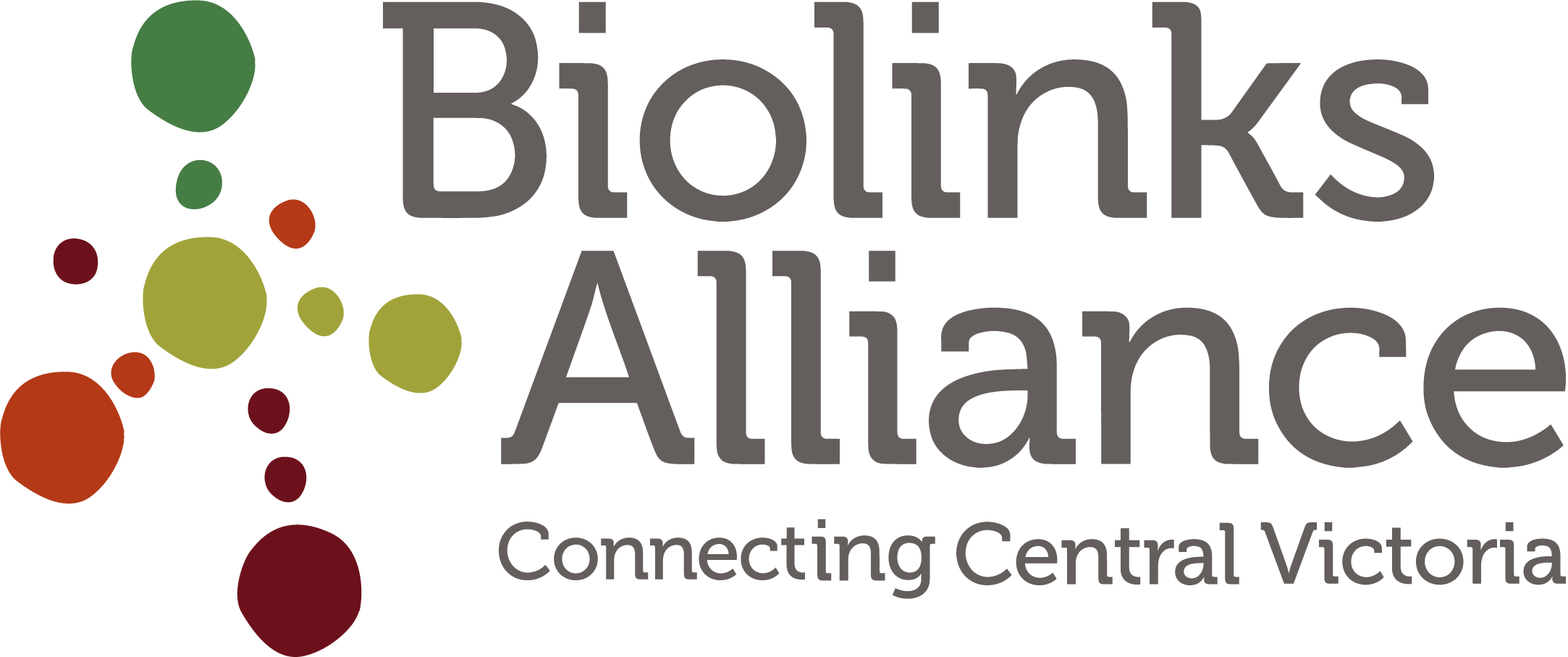Dr Peggy Eby
Public Address
'Australia’s Great Wildlife Migrations '
The Capital, Bendigo
Sunday 31 March 2019
Talk 2.00 for 2.30 pm
Where: Banquet Room, The Capital, 50 View St, Bendigo
Tickets: Free to Biolinks Alliance members, $10 for non-members.
Biolinks Alliance is proud to host leading conservation biologist Dr Peggy Eby in Bendigo for her public address: Australia’s Great Wildlife Migrations: Restoring habitats for Nomadic Nectar-Feeding Birds and Bats.
Find out why bats suddenly appeared in Bendigo’s parks & gardens?
Why is one in four of our woodland bird species listed as threatened or declining?
She has much to offer us as we pursue our ambitious vision to restore and re-connect habitat across central Victoria
Dr Eby is a leading conservation biologist based in Sydney, whose ground-breaking research has revealed the importance of Australia’s little-known, great wildlife migrations – our unique nectar-eating flying foxes and birds who fly huge distances tracking nectar-rich bushland trees as they flower.
With 198 native fauna species threatened with extinction in central Victoria we need new ways to tackle the problem.
Come and be inspired and hear how we all need to be, and can be, part of the solution in central Victoria.
Doors will open at 2.00 pm for a 2.30 pm start. Drinks will be available from 2.00. Come and chat with others before the talk. Reservations are essential. Despite tickets being free to Members of the Alliance we ask Members to book to assist with seating and catering.
Dr Eby has researched the movements and behaviour of Grey-headed Flying Foxes for more than 25 years, tracking their dynamic movement patterns across the country in response to habitat availability and climatic conditions.
Her current scientific interests include conservation of large-scale habitat connectivity for nomadic pollinators; the influences of behavioural responses to environmental change on human-bat conflict in urban areas; understanding the ecological drivers of disease emergence in Australian flying foxes; and using strategic habitat restoration to reduce disease risk and human-bat conflict.
Dr Eby holds an adjunct position at UNSW, runs a private consultancy business and holds formal and informal advisory positions with various government agencies.
Dr Eby also works with the US Center for Large Landscape Conservation on the Habitat for Health program, a National Science Foundation-funded initiative to restore key habitat for bats on private and public land.
Dr Eby has also undertaken significant work communicating the outcomes of her research to the scientific community, wildlife managers, land managers and stakeholder groups. She is author, or co-author, of more than 35 research publications on aspects of Flying Fox biology and ecology. She is co-editor of Managing the Grey-headed Flying-fox as a threatened species in NSW published by the Royal Zoological Society of New South Wales.
She has also explained the ecology of flying foxes to general audiences across Australia, appearing on the ABC’s science program Catalyst and in numerous radio, on-line and newspaper news items, as well as writing for The Conversation.
Dr Eby undertook her zoology degree in Colorado US, and her PhD at the University of New England. She is a Fellow of the Royal Zoological Society NSW, a recipient of a Bat Conservation International Award as well as a T.J. Watson Fellowship for International Study.
Professor Ary Hoffman, Melbourne University, speaking at the Biolinks Alliance Linking Landscapes Symposium on why ecological connectivity is important.
Dr Veronica Doerr, CSIRO, speaking at the Biolinks Alliance Linking Landscapes Symposium on why we need to reconnect habitat.
Biolinks Alliance is part of the Great Eastern Ranges (GER) Connectivity Initiative - hear renowned conservationist, Harvey Locke, explain why the GER is so significant.






